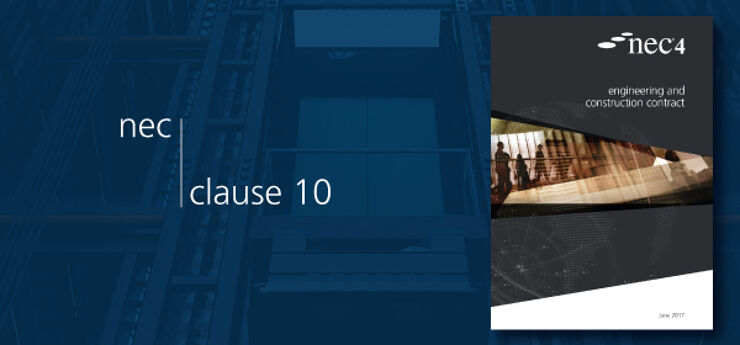
With the general adoption of NEC contracts for all public works projects in Hong Kong since 2016, proper understanding and use of the NEC suite is vital. A good starting point is clause 10, which requires the parties to act ‘as stated in the contract’ and ‘in a spirit of mutual trust and co-operation’.
While the ‘spirit of mutual trust and co-operation’ is seen by many as pivotal to the fundamental cooperative working relationship between NEC parties, there was for many years some doubt in the minds of contract administrators and lawyers alike as to whether the aspiration was too uncertain to be enforceable.
The added difficulty with such a provision is that it is more of a concept in civil law jurisdictions, although English law has given some effect to express good faith obligations in contracts (e.g. the 2013 case of Mid Essex Hospital Services NHS Trust v Compass Group UK and Ireland Ltd).
Defining clause 10
Until fairly recently there had been limited legal interpretation of NEC clause 10, probably because most cases involving NEC are adjudications or arbitrations and hence not dealt with by public courts.
The English courts shed some initial light on ‘spirit’ in the 1999 case of Birse Construction Ltd v St David Ltd. The judgment broadly defined ‘spirit’ as, ‘standards by which the parties were to conduct themselves and against which their conduct and attitudes were to be measured’.
More clarity was provided by the 2017 case of Costain Limited v Tarmac Holdings. The contractor argued its subcontractor failed to act in accordance with the clause 10 in the NEC3 Supply Short Contract by failing to draw its attention to a time-bar for claims.
The court decided ‘spirit of mutual trust and co-operation’ was similar to the obligations of good faith. Citing Keating on NEC3, the judgment restated the four obligations of good faith that should also apply under NEC clause 10:
- What is good faith will depend on the circumstances of the case and the context of the whole contract.
- Good faith obligations do not require parties to put aside self-interests; they do not make the parties fiduciary.
- Normal reasonable business behaviour is permitted but the court will consider whether a party has acted reasonably or unconscionably or capriciously and may have to consider motive.
- The duty is one “to have regard to the legitimate interests of both the parties in the enjoyment of the fruits of the contract as delineated by its terms”.
Based on the second principle, the court held the subcontractor did not have a duty to put aside its self-interests and notify the contractor of the time-bar provision.
A few months later, the court in Northern Ireland Housing Executive v Healthy Building (Ireland) Limited held that refusal by a consultant to disclose actual time sheets and records for work would be ‘entirely antipathetic’ to the spirit of ‘mutual trust and co-operation’ in the NEC3 Professional Services Contract.
While the court did not expressly apply the good faith principles of Costain, it took into account the, ‘overall sense of the contract with its emphasis also on the assessment of compensation events’. The court’s emphasis on the context of the contract is generally consistent with the first principle.
Relationship with other terms
NEC users should not however lose sight of the relationship between clause 10 and other provisions in NEC contracts. For example, even within clause 10 the obligation to act in a ‘spirit of mutual and co-operation’ is subject to compliance with acting ‘as stated in this contract’.
In the 2013 case of TSG Building Services plc v South Anglia Housing Ltd, the parties entered into an ACA TPC2005 contract with a clause providing they should, ‘work together and individually in the spirit of trust, fairness and mutual co-operation for the benefit of the Term Programme, within the scope of their agreed roles, expertise and responsibilities as stated in the Partnering Documents’. The same contract also set out the parties’ rights of termination in a separate clause.
Disputes arose as to whether a duty of good faith would be imposed on the parties’ right of termination. The court held that no duty of good faith was implied, as the scope of the ‘mutual trust and co-operation’ provision has been expressly limited to contractual rights and obligations.
Effect of clause 10
Clause 10 remains a significant feature in NEC3 and NEC4 contracts and their use − not just because it now has some legal effect but also because it represents the parties’ intention and attitude towards performance of the contracts.
NEC parties should now expect that courts will use ‘spirit of mutual trust and co-operation’ to do a limited amount of policing over the performance of the NEC contracts and look at the context and real intention of the parties in respect of particular provisions.
However, this is no panacea to noncompliance with express terms or carelessness in drafting particular provisions. The courts will not help to rewrite the contract or make one party give up what is their legitimate interest expressly provided for under the contract.
It is therefore perhaps prudent for NEC parties to continue to treat clause 10 as an excellent management tool and the starting point to cultivate a good working relationship between the parties, rather than seeking to resort to it when there are ambiguities in the interpretation of particular provisions.




